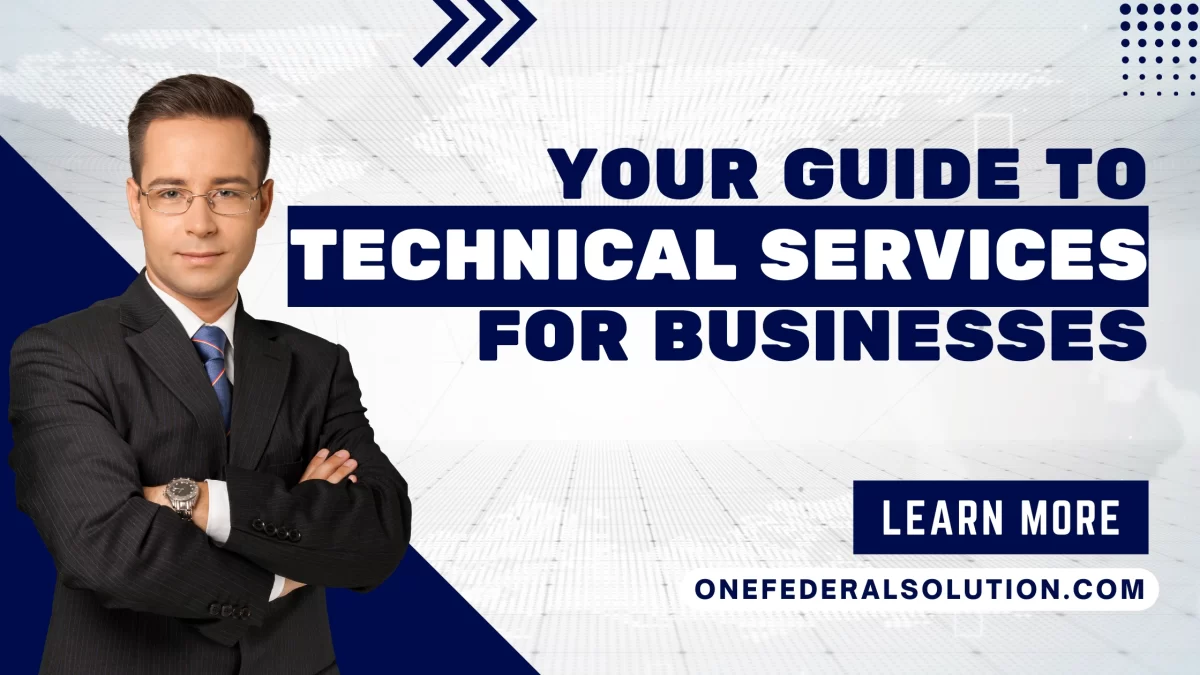The federal government offers a vast landscape of opportunities for businesses looking to secure contracts. In 2025, the process of navigating federal government contracting opportunities remains a promising yet complex endeavor for small and large businesses alike.
Whether you’re a seasoned contractor or a newcomer, understanding the intricacies of government contracting can open doors to stable revenue streams and long-term growth.
This blog will guide you through the essentials of federal government contracting, from understanding the market to mastering the federal contract bidding process.
Understanding the Federal Contracting Landscape
The federal government is one of the largest buyers of goods and services in the world, spending hundreds of billions of dollars annually. From construction projects to IT solutions, healthcare services to office supplies, federal government contracting opportunities span nearly every industry. In 2025, the government continues to prioritize innovation, sustainability, and support for small businesses, making it an ideal time to explore these opportunities.
The first step in navigating this space is understanding that government contracting is not like typical commercial deals. The government operates under strict regulations to ensure fairness, transparency, and accountability. These rules can seem daunting, but they exist to create a level playing field. Familiarizing yourself with the government’s needs, priorities, and processes is key to positioning your business for success.
Why Pursue Federal Government Contracts?
Entering the world of government contracting offers unique advantages. Federal contracts often provide long-term stability, as the government is a reliable client with consistent funding. Winning a federal contract can also enhance your business’s credibility, making it easier to secure additional contracts in the future. Moreover, the government actively seeks to work with small businesses, including those owned by veterans, women, minorities, and those in disadvantaged areas, through programs like the Small Business Administration’s 8(a) Business Development Program.
In 2025, federal agencies are increasingly focusing on technology-driven solutions, green initiatives, and cybersecurity. If your business aligns with these priorities, you’re in a strong position to compete. However, the process requires patience, preparation, and persistence, as the federal contract bidding process is highly competitive and detailed.
Getting Started: Registering Your Business
Before you can bid on federal government contracting opportunities, your business must be properly registered.
The first step is to obtain a Unique Entity Identifier (UEI) through the System for Award Management (SAM.gov). This free registration is mandatory for all businesses seeking federal contracts. SAM.gov is the central hub for government contracting, where you’ll also provide details about your business, such as its size, capabilities, and certifications.
Next, ensure your business is classified correctly. The government uses the North American Industry Classification System (NAICS) to categorize businesses based on their services or products. Choosing the right NAICS code is critical, as it determines which opportunities you can pursue. You may also need to register with specific agencies or platforms, such as GSA Advantage, for certain types of contracts.
Researching Federal Contracting Opportunities
Finding the right federal government contracting opportunities requires thorough research. SAM.gov is the primary platform for discovering open solicitations, which are essentially invitations for businesses to bid on specific projects. You can filter opportunities by industry, location, or set-aside status (contracts reserved for small businesses or specific groups).
Another valuable resource is the Federal Business Opportunities (FBO) section on SAM.gov, which lists upcoming and current solicitations. Additionally, agencies often publish forecasts of their contracting needs, giving you a heads-up on future opportunities. Networking with government procurement officers or attending industry days can also provide insider knowledge about upcoming projects.
In 2025, staying updated on government priorities is crucial. For example, agencies like the Department of Defense and the Department of Energy are investing heavily in advanced technology and renewable energy. By aligning your offerings with these trends, you can increase your chances of finding relevant opportunities.
Mastering the Federal Contract Bidding Process
The federal contract bidding process is where preparation meets opportunity. Once you identify a solicitation that matches your capabilities, you’ll need to submit a proposal that meets the government’s exact requirements. These requirements are outlined in the Request for Proposal (RFP) or Request for Quote (RFQ), which detail the scope of work, evaluation criteria, and submission deadlines.
Reading the RFP carefully is critical. It’s not enough to skim the document—every detail matters. The government evaluates proposals based on factors like technical capability, past performance, and cost. Your proposal should demonstrate how your business meets the agency’s needs, offering a compelling case for why you’re the best choice.
Crafting a winning proposal takes time. Start by outlining your approach to the project, emphasizing your expertise and unique value. Include a detailed budget that balances competitiveness with profitability. If the RFP allows, consider partnering with other businesses to strengthen your bid, especially if you’re a small business competing against larger firms.
Tips for Writing a Winning Proposal
To win federal contracts, your proposal must stand out while adhering to strict guidelines. Clarity and precision are non-negotiable—avoid jargon and vague statements. Instead, use straightforward language to explain how you’ll deliver the project on time and within budget. Highlight your team’s qualifications, past successes, and any certifications that set you apart, such as being a Service-Disabled Veteran-Owned Small Business (SDVOSB).
Another key tip is to address the government’s evaluation criteria directly. If the RFP emphasizes innovation, for instance, showcase how your solution incorporates cutting-edge technology. If cost is a major factor, ensure your pricing is competitive without compromising quality. Finally, proofread your proposal meticulously—errors can undermine your credibility.
Navigating Set-Aside Contracts and Certifications
One of the government’s goals is to support small and disadvantaged businesses, which is why many federal contracts are “set aside” for specific groups. These include small businesses, women-owned businesses, and HUBZone (Historically Underutilized Business Zone) companies. Obtaining certifications like 8(a), SDVOSB, or Women-Owned Small Business (WOSB) can give you access to these exclusive opportunities.
Applying for certifications requires time and documentation, but the effort is worth it. For example, the 8(a) program offers mentorship and access to sole-source contracts, which don’t require competitive bidding. Research the certifications that align with your business and start the application process early, as approvals can take months.
Building Relationships and Networking
Government contracting is as much about relationships as it is about paperwork. Building connections with procurement officers, prime contractors, and other businesses can give you an edge. Attend industry events, webinars, and matchmaking sessions hosted by agencies or organizations like the Small Business Administration. These events allow you to learn about agency needs and showcase your capabilities.
Partnering with prime contractors—larger companies that often lead major contracts—can also be a smart strategy. Many primes are required to subcontract portions of their work to small businesses, creating opportunities for collaboration. Establishing trust and demonstrating reliability can lead to long-term partnerships.
Staying Compliant and Managing Contracts
Winning a federal contract is just the beginning. Once awarded, you’ll need to comply with strict regulations, including reporting requirements, labor standards, and performance metrics. Non-compliance can result in penalties or loss of future opportunities, so invest in systems to track contract deliverables and deadlines.
Consider hiring a contract administrator or consultant if your business is new to government contracting. They can help you navigate complex requirements, such as those outlined in the Federal Acquisition Regulation (FAR). Regularly reviewing your performance and seeking feedback from the contracting agency can also improve your chances of securing additional contracts.
Overcoming Common Challenges
Government contracting isn’t without its hurdles. The bidding process can be time-consuming, and competition is fierce. Small businesses, in particular, may struggle with the resources needed to craft competitive proposals. To overcome this, consider starting with smaller contracts or subcontracting opportunities to build experience.
Another challenge is the lengthy payment cycle. The government typically pays within 30 days, but delays can occur. Plan your cash flow carefully to avoid financial strain. Finally, stay patient—winning federal contracts often takes multiple attempts, but persistence pays off.
Looking Ahead: Trends in 2025
As we move through 2025, federal government contracting opportunities are evolving. Agencies are prioritizing artificial intelligence, clean energy, and infrastructure modernization. Small businesses with expertise in these areas are well-positioned to compete. Additionally, the government is streamlining processes to make contracting more accessible, with initiatives like simplified acquisition procedures for smaller contracts.
Keeping an eye on these trends can help you stay ahead of the curve. Subscribe to agency newsletters, follow updates on SAM.gov, and engage with industry associations to stay informed. By aligning your business with the government’s priorities, you can position yourself as a valuable partner.
Final Thoughts
Navigating federal government contracting opportunities in 2025 requires preparation, research, and persistence. By understanding the federal contract bidding process, leveraging certifications, and building strong proposals, your business can tap into a wealth of opportunities. While the journey may seem complex, the rewards—stability, growth, and credibility—are well worth the effort.
Start small, stay compliant, and keep learning, and you’ll be on your way to winning federal contracts and thriving in the government marketplace.





